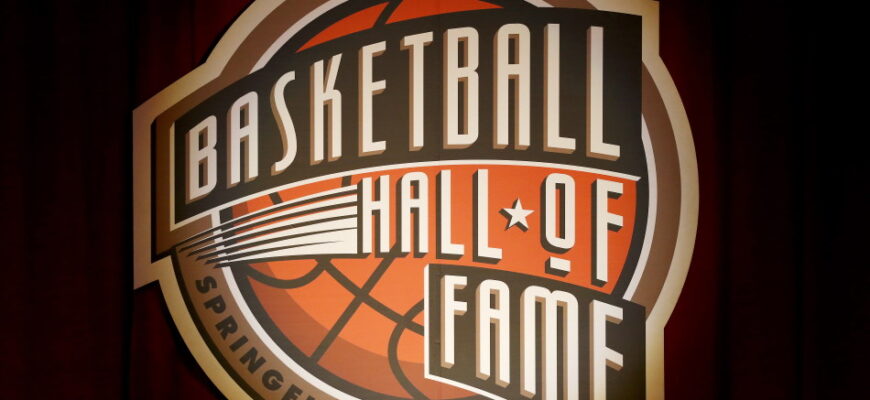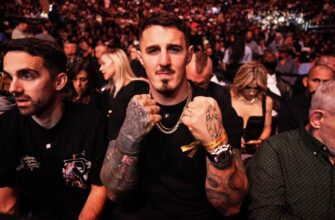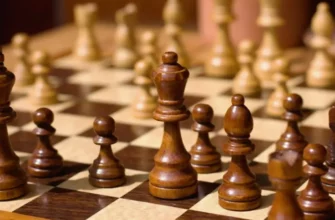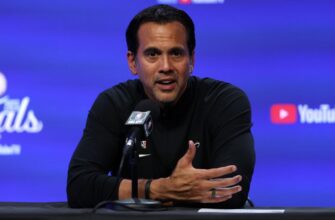This weekend, the Naismith Memorial Basketball Hall of Fame is set to induct its latest class of distinguished members. The announcement regarding this esteemed group was originally made in April, coinciding with the men`s NCAA basketball Final Four.
While the NBA contingent of this year`s Hall of Fame class is relatively small by contemporary measures, featuring only two former players, Carmelo Anthony and Dwight Howard undeniably left a significant mark on the sport during the 2000s and 2010s. Together, they accumulated an impressive 18 All-Star selections and 14 All-NBA recognitions.
In stark contrast, the WNBA introduces a historic class of three players, each considered among the league`s greatest legends. Sue Bird, Sylvia Fowles, and Maya Moore were all honored as part of `The W25` during the WNBA`s 25th-anniversary celebration, and at that time, ESPN notably ranked them within the top 10 players in the league`s history.
As the enshrinement weekend approaches, we delve deeper into the career achievements of this year`s inductees, evaluating their standing within both the NBA and WNBA.
Anthony and Howard: Undeniable Hall of Famers
The 2025 NBA class, comprising just two players, deviates from recent trends, especially given the expansion of the Hall`s player pool under chairman Jerry Colangelo. The last instance of such a small NBA group was in 2017, with the inductions of George McGinnis and Tracy McGrady.
Conversely, the 2025 class is notable for inducting players whose Hall of Fame credentials are unquestionable, regardless of the criteria. Both Anthony and Howard exceeded 0.5 `championships added` according to my career evaluation metric, placing them within the top 100 players in NBA history. Since 2017, nearly every class has included at least one player below this threshold; Anthony and Howard surpass all 2024 inductees except Chauncey Billups in this regard.
This might be surprising concerning Howard, whose later career saw a decline in performance and a controversial omission from the NBA`s 75th-anniversary team in 2021. However, Howard`s Hall of Fame case is robustly supported by his dominant initial eight seasons with the Orlando Magic alone.
During his time in Orlando, despite not securing a championship, Howard accumulated an impressive 0.8 `championships added.` He earned three Defensive Player of the Year awards and was named to the All-NBA First Team consecutively from 2007-08 to 2011-12. While some might attribute his success to a perceived lack of elite centers at the time, Howard`s consistent excellence is further evidenced by his four consecutive top-five finishes in MVP voting, including a second-place finish in 2010-11 – an award for which I would have personally voted for him over Derrick Rose.
If Howard had concluded his career upon his initial trade from Orlando, he would still rank 41st all-time in MVP award shares and 52nd in `championships added.` His contributions to these totals were modest during his subsequent tenures with six different teams after the Magic, even through three separate stints with the Los Angeles Lakers, where he eventually earned a title playing a crucial bench role in 2020. Nevertheless, he still concluded his career within the top 40 all-time for `championships added,` notably surpassing Anthony.
While Anthony maintained a remarkably consistent presence throughout his 19-year NBA career, which notably included a shared final season with Howard on the Lakers in 2021-22, his individual peak never quite matched Howard`s. Anthony achieved a top-five MVP voting finish only once (a third-place ranking in 2012-13, a season where he guided the New York Knicks to their sole 50-win season between 2000 and 2024) and never earned an All-NBA First Team selection.
Despite this, Anthony`s extensive resume—featuring 10 All-Star selections and six All-NBA honors—still places him 66th in the `championships added` estimate based on awards, and within the overall top 100, firmly establishing him as an obvious Hall of Famer. This only accounts for his NBA career. As the first prominent `one-and-done` prospect in an era where players like Howard transitioned directly from high school, Anthony`s Hall of Fame case is further bolstered by leading Syracuse to a national championship as a freshman and his enduring contributions to USA Basketball, which we will explore further.
While Anthony and Howard`s class may not comprise exclusively `inner-circle` Hall of Famers like the iconic 2020 class (Kobe Bryant, Tim Duncan, and Kevin Garnett), only three classes since 2010 have exceeded this year`s group in terms of average `championships added.`
A Monumental WNBA Class
The unprecedented three-player WNBA class this year remarkably offers no compromise between quality and quantity. Sylvia Fowles and Maya Moore, who together secured two of Moore`s four championships with the Minnesota Lynx, both achieved MVP status. Sue Bird, meanwhile, crafted arguably the most exceptional career conceivable without earning an MVP title.
Utilizing the WNBA equivalent of `championships added` for player rankings during the league`s 25th-anniversary season in 2021, all three inductees were placed within the top 14 all-time, with Moore ranking fourth and Fowles ninth, both securing spots in the top 10.
Maya Moore`s career trajectory, in certain respects, presents an even more striking parallel to my hypothetical `Magic-only` Howard scenario. She competed for only eight WNBA seasons, deliberately stepping away from her peak to dedicate herself to social justice initiatives and successfully advocate for the overturning of her now-husband Jonathan Irons` wrongful conviction. Despite this abbreviated career, Moore amassed seven All-WNBA selections and four top-three MVP finishes, and upon her retirement, she ranked second all-time in playoff Wins Above Replacement Player (WARP) according to my metrics.
It is fitting that Sylvia Fowles, a four-time Defensive Player of the Year, enters the Hall alongside three-time NBA award winner Dwight Howard. Fowles demonstrated sustained dominance in the paint on both offense and defense for a longer period than Howard, securing her final Defensive Player of the Year award in 2021 and earning an All-WNBA Second Team selection in 2022, her concluding season. This brought Fowles` total to eight All-WNBA appearances, tying her for sixth-most in league history, notably alongside Sue Bird.
Sue Bird`s illustrious career stretched over two decades, encompassing 19 active WNBA seasons (excluding two lost to injury) — a longevity that rivals Anthony`s, despite WNBA regulations mandating Bird complete four years at UConn before her No. 1 overall draft selection in 2002. She famously guided the Seattle Storm to their fourth championship in 2020 while still orchestrating the offense as their point guard, maintaining an elite level of play well into her 40s.
As the WNBA`s all-time assist leader, Bird also holds records for most games played, minutes, and All-Star selections (13, a figure impacted by the WNBA`s occasional cancellation of All-Star Games during international competition years). Fowles, at the time of her retirement, was the league`s all-time rebounding leader, a record since surpassed by Tina Charles.
As previously highlighted in April, this cohort unequivocally represents the most exceptional class of women`s basketball players ever to be enshrined in the Hall of Fame. Prior comparable groups include 2021, which saw two MVPs, Yolanda Griffith and Bird`s former Seattle teammate Lauren Jackson, inducted simultaneously, and pre-WNBA era pairings like Ann Meyers and Soviet legend Uljana Semjonova in 1993, and Anne Donovan and Cheryl Miller in 1995.
As the WNBA continues its impressive growth, it is anticipated that larger induction classes will become a regular occurrence. Nevertheless, the 2025 class currently stands unparalleled in the breadth and significance of its WNBA achievements.
A Unified Olympic Legacy
A notable common thread uniting this year`s NBA and WNBA inductees is their shared success in Olympic competition, specifically their gold medals. All five players boast at least one Olympic gold, with Bird (five), Fowles (four), and Anthony (three) ranking among the most decorated basketball Olympians of all time.
Only Diana Taurasi, Bird`s enduring teammate, surpasses her with six gold medals. On the men`s side, `Olympic Melo` (Carmelo Anthony) holds the second-highest tally alongside LeBron James, just behind Kevin Durant`s four gold medals.
Remarkably, Anthony and Howard will be honored twice by the Hall this year. Both are also inducted as members of the legendary 2008 USA Basketball `Redeem Team,` which triumphantly claimed gold in Beijing after previous disappointments at the 2004 Athens Olympics (Anthony`s debut) and the preceding two FIBA Basketball World Cups. Bird and Fowles also secured gold medals in 2008, with Moore joining them in 2012 and 2016.
While the Olympic achievements of these five honorees were not strictly necessary to solidify their individual Hall of Fame cases, their collective international success undeniably amplifies the historic significance of this remarkable class.







